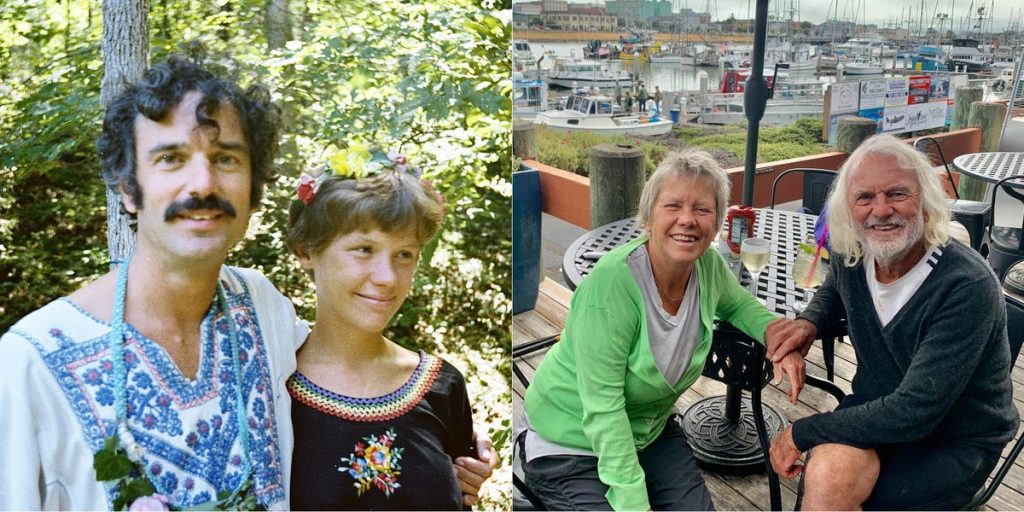My husband Barry and I got married in 1978, and for the first half of our marriage, he and I maintained separate finances. Our approach worked fine for the first few years because life wasn’t very pricey where we lived back then in Bellingham, Washington.
But our move to Palo Alto, California, 10 years later, when I was 37, was the most intimidating chapter in my adult life. I was not only relocating to a costly new area where I knew no one, but also embarking on a new business as a training consultant. The Bay Area was exponentially more expensive than anywhere I had ever lived, and I had to earn a serious income for the first time in my life. Barry had a head start, as he was nine years older than I was and established in his profession.
It wasn’t working anymore to keep things separate
The truth was, our system of paying equally for things was no longer working. I couldn’t keep up, but we were both in denial about it. I was too embarrassed to admit it, because I was attached to my self image — one of an empowered woman who wasn’t dependent on her husband’s income. Barry, meanwhile, was invested in our approach, because he had been the sole earner in his very traditional first marriage, and it had exhausted him. I was anxious and unhappy, but we both pretended it wasn’t the case.
During a brief dip in the market seven years after moving to California, we managed to scrape together the money to buy a house. We still had separate finances at the time. Since Barry had more savings to invest in our down payment than I did, I would put in chunks of money when I had a good month. But no matter how much I put in, I was always behind, and there were some periods when I had to borrow from him to pay my other expenses.
I began to feel resentful that I could never seem to catch up. It took several discussions, but the pivotal one came about while we were walking in Windy Hill, an open space preserve in the green belt above Palo Alto. Thanks to a psychedelically-assisted awareness, I got real, and said, “I feel you love me less because you won’t share your money with me.”
“That woke me up,” Barry says now. A few months later, before we left Palo Alto on a self-designed sabbatical, we merged our checking and savings accounts, and converted Barry’s mutual funds into joint ownership. Today we maintain separate credit cards (for the beauty of frequent flyer miles), paid for out of our joint checking account. But other that, all that remains separate are our IRAs.
Combining our finances changed things for the better
The first logistical change we noticed was how simple our new system was, especially on our sabbatical when we were spending money on housing, food, and other daily expenses. There was no more careful tracking of who paid what.
Of course, we still had our differences. Barry is a bigger spender than I am, and sharing money meant we had to negotiate our distinct styles.
Other changes were more gradual, like the changes we both experienced in our attitudes toward money. A couple of months into our sabbatical, we were visiting Yagul, a ruin near Oaxaca, Mexico. As we sat on a bluff overlooking the gentle valley below, Barry said, “You know what? I just realized something. We have enough.” What he meant was, we didn’t have to worry or crimp; we’d be fine.
But I’d had years of anxiety baked into my system, a state of mind that had unfortunately encouraged me to be cheap when it came to gift-giving and tipping. I couldn’t let go of my sense of scarcity that fast. Not surprisingly, it took longer for me to understand the fact that I had enough.
Now, 20 years later, the anxiety I once felt has indeed vanished. Combining our finances not only helped us relax, but we’ve also become more creative and generous both with time and money.
Every year we donate to nonprofits that focus on environmental issues and girls’ education. And we have volunteered for a USAID program where we’ve used our respective professional skills in seven countries. Last year, we were in a position to help my stepdaughter and son-in-law with the down payment on their home. If our finances were still separate, I would have been much more leery about contributing and would have probably negotiated with Barry a pro-rata offering. Instead, we had a mutual desire to offer our support.
The irony is that over the last 20 years, I ended up earning more than Barry, so in the long run, I did indeed pay my way. But who’s counting? We sure aren’t.
Read the full article here




